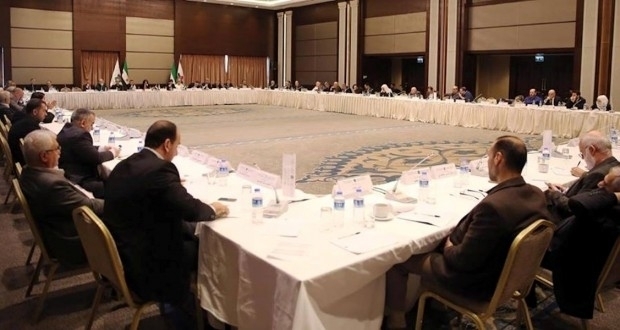Syrian opposition meetings in the last month crystallized two basic documents concerning a political solution in Syria. The first was "a Call for Syria", issued after the Cairo meeting in late January, while the second "political solution document" was issued by the General Commission of the Syrian National Coalition after its last meeting in Istanbul in February.
The importance of the two documents lies in three key points; the first point is the presence of most of the opposition forces in the Cairo and Istanbul meetings – namely the National Coalition and the Coordination Commission – in addition to the majority of the Kurdish forces, which gives greater legitimacy to the option of a political solution. The second point is in regard to the contents of the two documents, considering the content of these two documents has separated them from the dialogues held in Cairo between the Coalition and the Coordination Commission. Additional support came from the Stockholm Forum, which was held two weeks ago in the presence of a number of opposition figures who supported the Cairo document, with some also participating in the recent Coalition meetings.
The second point is the fundamental consensus in both these documents on the need for a political solution, and to consider the Geneva Statement as a reference for the forthcoming political solution – the six points included in the statement and the international resolutions related to the Geneva 2 conference and its contents; particularly the transitional governing body with full powers over the security forces and the army, and the objectives of the political process which seeks to establish a new democratic regime in Syria.
The third point, which includes the need for preliminary steps made by the regime to confirm his acceptance of engagement in the political process, will lead to practical results, such as the release of detainees, lifting the blockades on the besieged areas, facilitating the entry and access to humanitarian and relief assistance to all Syrian regions, in addition to the need for international guarantees to sponsor the solution and reach practical results.
The opposition's steps to adopt a political solution and develop a road map for it, despite the difference in some details, is a positive thing – in terms of the common orientation of the opposition on the one hand, and pressuring the international community to accept its responsibility towards the Syrian issue on the other.
However, the previous positive developments need to satisfy their shortcomings through a set of immediate and urgent steps, most notably the work to hold a Syrian national conference that brings together opposition parties to unite them on a single vision for a political solution. The Cairo Conference, to be held in April, can accomplish this task if the team in charge of its communications and preparations found a timely opportunity.
The revitalization of the Syrian and international dialogues and communications concerning a political solution at the Cairo Conference exhibited the necessary steps required to find a local and international political sponsor for the solution. This sponsor should be prepared to undertake the practical and procedural steps, either through the UN Security Council or through an international formula outside the Security Council, if Russia and China insist on their position to use the veto in dealing with the Syrian issue in the Security Council.
The Syrian opposition has begun the required work – in political terms – alongside its meetings to reach a vision of a political solution; a vision which began to develop last year, when the National Coalition attended the Geneva 2 conference in negotiations with the Assad regime. The international community is now facing its responsibilities, if its states and bodies have the ability to hear and see all that happened – and is happening – in Syria.
Translated and edited by The Syrian Observer


